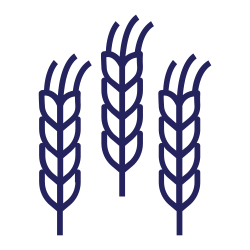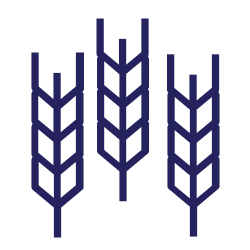Section Title
Contrasting fungicide applications and genetic fusarium head blight resistance for enhanced yield and quality of barley.
Crop Types
- Barley
Background
This project will look at the effect of foliar fungicide strategies on the mitigation of FHB in barley.
Objectives
- To investigate the potential economic merits of contrasting foliar fungicide strategies in barley production.
- To investigate the potential for foliar fungicide applications and genetic FHB resistance to enhance end-use quality of barley.
Related Production Resources
Manitoba Crop Alliance’s production resources provide reliable agronomic information based on the latest research. Our resources have been developed to help farmers make productive and sustainable decisions on their farms throughout the growing season.
Related Research Projects

-
Start Date: 2019
-
Completion Date: 2022
-
Project Status: Completed
Currently evaluation of moisture resilience by variety is not available for producers, in spite of moisture being the most probable cause for yield reductions. This project will evaluate the performance of MCVET varieties under extreme moisture conditions. Read More

-
Start Date: 2017
-
Completion Date: 2022
-
Project Status: Completed
This information will help producers make decisions on where to focus their input dollars and will provide an opportunity to highlight the effects of PGR’s in spring wheat production. This information can also be used to determine if the variety… Read More

-
Start Date: 2021
-
Completion Date: 2023
-
Project Status: Ongoing
Generating barley varieties with enhanced FHB resistance is complex because multiple fungal compounds and plant genes influence disease severity. We recently discovered a fungal compound called gramillin that promotes FHB severity in barley and is toxic to plants, killing cells… Read More

-
Start Date: 2021
-
Completion Date: 2023
-
Project Status: Ongoing
Preliminary observations in Dr. Bakker’s lab have revealed that there are trichomes on the inner surface of the hull; these have never been explored for potential interactions with Fusarium growth. Using field-grown barley, including multiple different lines and varieties, we… Read More
-
Start Date: 2021
-
Completion Date: 2024
-
Project Status: Completed
This project aims to establish a simple, rapid and cost-efficient seed testing protocol by using a novel technique, named loop-mediated isothermal amplification (LAMP). Meanwhile, a greenhouse/growth cabinet disease evaluation method will be developed to screen barley germplasm for resistance, and… Read More

-
Start Date: 2020
-
Completion Date: 2025
-
Project Status: Completed
The deliverables of this project will complement other national and international efforts for the identification of virulence genes in F. graminearum, which are mainly focused on reverse genetic studies, meanwhile it exemplifies the necessity of integrating forward and reverse genetics… Read More

-
Start Date: 2020
-
Completion Date: 2026
-
Project Status: Ongoing
This project will maintain progress in breeding improved DON resistant barley varieties and to identify new tools to breed for DON resistance. Read More

-
Start Date: 2020
-
Completion Date: 2023
-
Project Status: Completed
The long-term goal of this research, is to utilize natural immunity in wheat germplasm to identify new sources of effective resistance. The novel resistance genes identified will eventually be passed on to wheat breeding programs for development of FHB and… Read More

-
Start Date: 2021
-
Completion Date: 2024
-
Project Status: Ongoing
This project will investigate the application of RNA-based fungicides to control major diseases of crops grown on the prairies, namely wheat and canola. This approach is based on proven research that has demonstrated that the application of RNA molecules directly… Read More

-
Start Date: 2022
-
Completion Date: 2025
-
Project Status: Ongoing
The new source of Fusarium resistance (not yet tapped by local breeders), combined with the resistance already present in commercial cultivars, could reduce the impact of more aggressive F. graminearum chemotypes on grain yield and quality losses as well as… Read More

-
Start Date: 2022
-
Completion Date: 2026
-
Project Status: Ongoing
Markers developed in this proejct will accelerate the breeding process and make trait monitoring more accurate and cost effective over traditional phenotyping. Improved resistance to FHB will protect the producer's grades as well as milling and baking quality of Canadian… Read More

-
Start Date: 2022
-
Completion Date: 2026
-
Project Status: Ongoing
This project aims to begin rating commercialized Canadian varieties for competitiveness. In addition it will allow development of a methodology to take competitiveness testing forward into a framework such as the regional variety trials to continue rating of registered varieties… Read More

-
Start Date: 2022
-
Completion Date: 2025
-
Project Status: Ongoing
The proposed research is aimed at identifying germplasm lines and novel candidate genes/molecular markers that provide a unique opportunity for efficient and directed breeding of malting barley cultivars with optimum dormancy. Read More
-
Start Date: 2022
-
Completion Date: 2025
-
Project Status: Ongoing
This project would increase adoption of improved barley cultivars on farm and also may make PGR management practices more efficient. Read More

-
Start Date: 2021
-
Completion Date: 2024
-
Project Status: Ongoing
Diseases are one of the biggest foes associated with barley production in Canada; Fusarium head blight (FHB) in particular is the most dangerous as it produces mycotoxin in the grain thus affecting malting and marketing. This project has multi-faceted benefits… Read More
-
Start Date: 2021
-
Completion Date: 2022
-
Project Status: Completed
This project is a proof of concept for long-term potential development of new biodegradeable fungicides for field applications. Read More

-
Start Date: 2018
-
Completion Date: 2023
-
Project Status: Ongoing
A better understanding of the factors responsible for the shift in Fusarium population and differences in trichothecene chemotype composition will enable the prediction of future population distribution, possibly related to future changes in climate. Fusarium chemotype diversity may be driven… Read More

-
Start Date: 2019
-
Completion Date: 2022
-
Project Status: Completed
The knowledge, germplasm and markers generated from this project will accelerate breeding cycles and benefit the wheat industry. Read More

-
Start Date: 2019
-
Completion Date: 2022
-
Project Status: Ongoing
Potential identification of fusarium head blight (FHB) resistance in intermediate wheatgrass (IWG) germplasm developed at the U of M. Read More

-
Start Date: 2018
-
Completion Date: 2019
-
Project Status: Completed
This project investigated the gene expression of several barley varieties when under waterlogging stress. Read More
Project Details
Field Issues
- Disease


